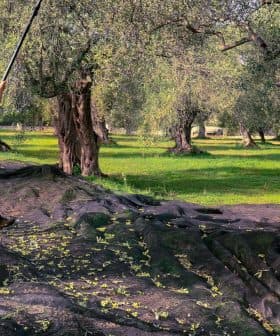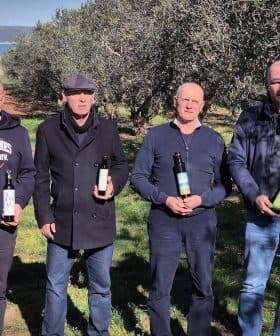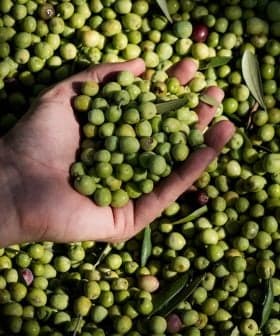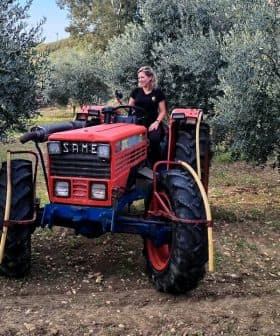South African Producers Hope for Winning Harvest
Favorable weather and improved olive grove care in South Africa are expected to lead to a better olive oil harvest in 2022, with local producers consistently maintaining high-quality profiles and winning international awards. Despite challenges such as climate change impacts and competition from cheaper imported products, the South African olive industry is focusing on consumer education and increasing demand for local extra virgin olive oil.
Some favorable weather and the growing ability of olive growers to take care of their groves are fueling hopes that the incoming 2022 harvest season will reward South African olive oil producers.
“A wide sample of producers from different growing areas have indicated that they are expecting a better crop than in 2021,” Vittoria Jooste, chief executive officer of the South African Olive Industry Association (SA Olive), told Olive Oil Times.
The majority of groves are traditional, with less than a handful of intensive producers. With rising input costs and consumer misinformation, local producers face a very tough battle to compete and stay in business.
According to SA Olive data, local farmers have managed to produce around 1.6 to 1.7 million liters of extra virgin olive oil in each of the last two years.
Olive growing is carried out in several areas of the country, mostly in the Western Cape province, the coast of which stretches from Cape Town on the south Atlantic Ocean coast to the Indian Ocean coast.
See Also:Australian Producers Expect Another Excellent Harvest“The majority of South African olive groves are traditional, harvested manually, with a specific attention to quality,” Jooste said. “Over 95 percent of our production is extra virgin olive oils.”
In other areas, such as the Northern Cape Province, the Olives South Africa company has expanded its irrigated olive groves, which now boast more than 200,000 trees, mostly Mission, Frantoio and Coratina varieties.
According to the local olive industry association, the quality of the final product has grown as it has grown the interest of the consumers.
“Our extra virgin olive oils have consistently maintained a high-quality profile, which has been confirmed by the many international prizes won by our producers over the years,” Jooste said.
At the 2021 edition of the NYIOOC World Olive Oil Competition, South African producers earned four Gold Awards and five Silver Awards, tying the record for wins of the previous year. As the 2022 edition of NYIOOC is in progress, local producers are waiting to see if they will best the last two years’ awards records.
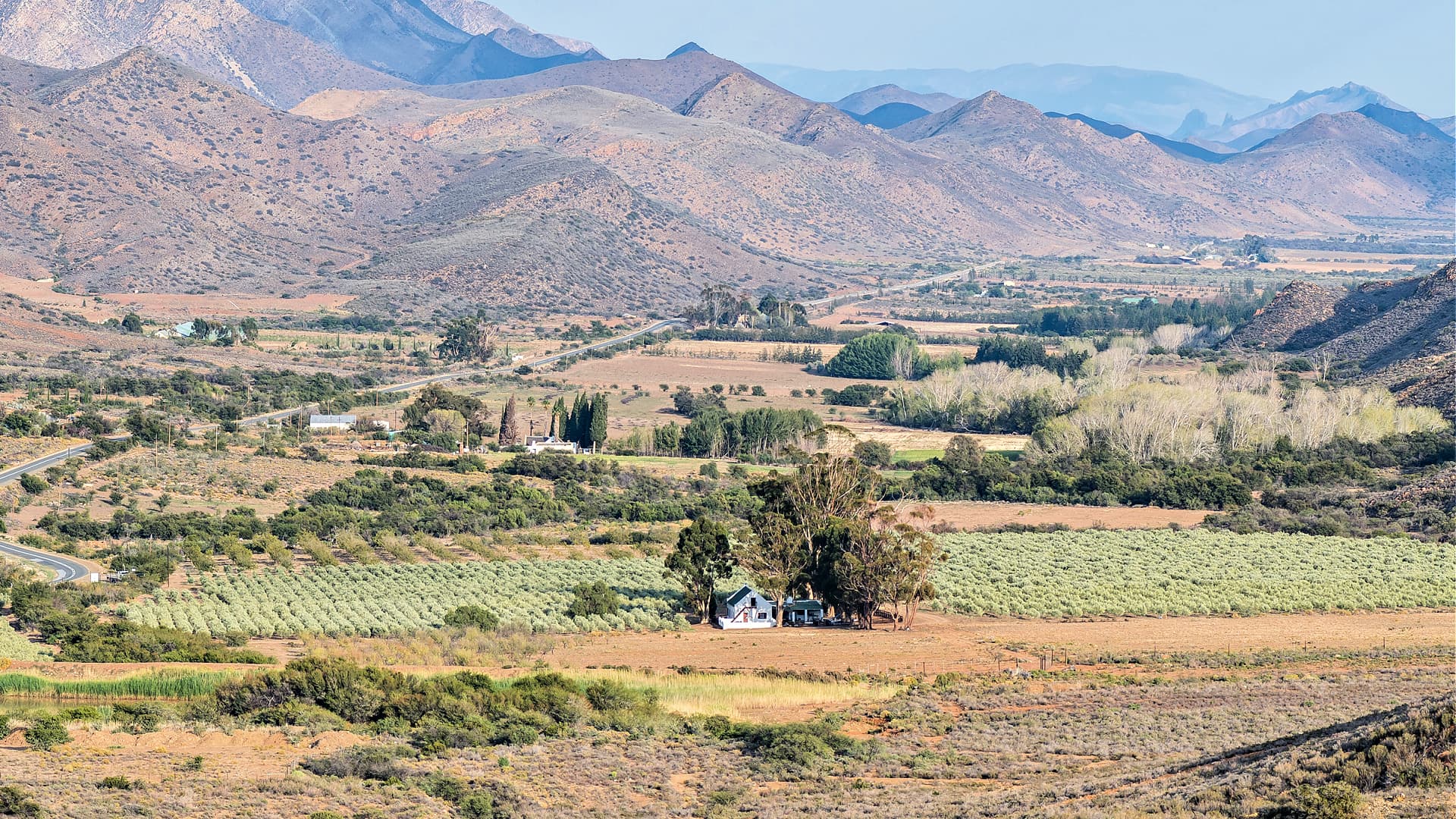
Prince Albert Valley and the Swartberg Mountains, South Africa
“Each year we prepare for our harvest knowing that this competition is coming up,” Nick Wilkinson, co-owner of Rio Largo Olive Estate, told Olive Oil Times. “We have participated from the outset and feel honored that a small family estate all the way from the southern tip of Africa is able to stand its ground among all those international estates that have been producing extra virgin olive oil of distinction for generations.”
Apart from some drought experienced in recent years in a few areas, local farmers are enjoying mostly favorable weather despite the increasing effects of climate change being felt globally.
“Our producers have been feeling the impact of climate change, for instance, through prolonged droughts, and this has a major impact on olive oil production,” Jooste said.
Still, the main challenge that producers in South Africa cite is their uphill battle to reach consumers who are often used to cheaper products and not always able to grasp the uniqueness of local extra virgin olive oil.
“The major challenge comes from competition with cheap, lower-quality imported products,” Jooste said. “Consumers are misled into believing that the Mediterranean olive oils that sit on supermarket shelves next to our superb local extra virgin olive oils are of equal quality.”
See Also:Farmers in New Zealand Optimistic Ahead of Harvest“Once prices are compared, local extra virgin olive oils lose out,” she added. “The reality is that imported extra virgin olive oils of comparable quality to the local ones would retail at hundreds of rand [at the time of writing €1 is worth nearly 17 rand].”
Today, a few dozen different olive varieties from Italy, Spain and Greece comprise the country’s traditional groves with minimal maintenance interventions. The harvest usually happens slightly early, and many olive farms collect their fruits only by hand. This allows specific attention to be paid to quality, even if it translates into higher production costs.
According to SA Olive data, almost half of the approximately 200 producers in South Africa manage farms smaller than five hectares, while just a few farms occupy more than 100 hectares.
“The total estimated area of active olive groves ranges between 3,500 and 5,500 hectares, depending on the [data] source. The majority of groves are traditional, with less than a handful of intensive producers,” Jooste said. “With rising input costs and consumer misinformation, local producers face a very tough battle to compete and stay in business.”
Still, consumers’ attention is growing. “There has been increasing interest in extra virgin olive oil’s health benefits, even more with the Covid-19 pandemic,” Jooste said.
“SA Olive’s generic marketing activities are directed at creating more awareness and growing the demand for extra virgin olive oil,” she added. “Sadly, consumers have been used to the flavor profile of supermarket extra virgin olive oils, and much effort needs to go into educating them to appreciate the difference.”
One of the means through which SA Olive is sustaining the development of the local industry is the SA Olive certified quality seal. It can be used by adhering producers whose activity falls in line with the International Olive Council parameters for extra virgin olive oil.
The seal indicates the low acidity and moderate to high polyphenol content of the oils. Local experts believe the seal is crucial to give more opportunities to local producers, even more in a market where retailers do not consistently implement full disclosure labels.
According to the local industry association, traditional groves and approaches to olive growing are here to stay. Traditional olive groves will long dominate the South African olive sector.
“It is unlikely that our olive groves will shift from traditional to intensive due to the capital investments required,” Joost concluded. “In a country with unemployment close to 50 percent, labor creation is a national imperative and olive farming is a labor-intensive sector.”


